|
In our quest for a long and fulfilling life, we often look for inspiration from those who have achieved remarkable longevity. The Blue Zones, five regions around the world with the highest concentration of centenarians, offer valuable insights into the habits and lifestyles that contribute to their exceptional health and longevity. Let's explore each of these zones - Loma Linda, CA, Nicoya Costa Rica, Sardinia Italy, Icaria Greece, and Okinawa Japan - and discover how we can incorporate their practices into our own lives.
1. Loma Linda, CA: Located in Southern California, Loma Linda stands out for its high concentration of Seventh-day Adventists. Their faith encourages a healthy lifestyle, emphasizing a plant-based diet, regular exercise, and a day of rest. The community's strong sense of purpose and close-knit social connections contribute to their longevity. 2. Nicoya, Costa Rica: In Nicoya, Costa Rica, the locals attribute their long lives to a combination of a plant-based diet, physical activity through daily chores, and a strong sense of community. Their diet is rich in beans, corn, and tropical fruits, while their social connections and support systems foster a sense of belonging and purpose. 3. Sardinia, Italy: Sardinia, an island in the Mediterranean, boasts the highest concentration of male centenarians. The Sardinian lifestyle revolves around a plant-based diet, rich in whole grains, legumes, and goat's milk. Physical activity is an integral part of their daily routine, with walking being a common mode of transportation. Strong family ties and a deep-rooted sense of community contribute to their longevity. 4. Icaria, Greece: Icaria, a small Greek island, is known for its relaxed pace of life and low-stress levels. The inhabitants follow a Mediterranean diet, rich in vegetables, olive oil, and herbal teas. Regular physical activity, such as gardening and walking, is a natural part of their daily lives. The close-knit community and emphasis on socializing and enjoying life contribute to their overall well-being. 5. Okinawa, Japan: Okinawa, an island in Japan, is renowned for its high number of centenarians. The Okinawan diet, known as "Hara Hachi Bu," emphasizes eating until one is 80% full. Their diet consists of nutrient-dense foods like sweet potatoes, tofu, and seaweed. Regular physical activity, such as gardening and martial arts, keeps them active. Strong family bonds, social support, and a sense of purpose contribute to their longevity. Similarities and Findings: Despite their geographical and cultural differences, the Blue Zones share common lifestyle practices that contribute to longevity: 1. Movement: Regular physical activity is an integral part of their daily lives, often in the form of natural movements like walking, gardening, and household chores. 2. Sense of Purpose: Having a strong sense of purpose and a reason to wake up each day contributes to their overall well-being and longevity. 3. Stress Reduction: Blue Zone inhabitants have lower stress levels due to their relaxed lifestyles, strong social connections, and emphasis on leisure and enjoyment. 4. Diet: A predominantly plant-based diet, rich in whole grains, legumes, fruits, and vegetables, forms the foundation of their eating habits. They consume minimal processed foods and practice portion control. 5. Family and Social Life: Strong family bonds, social support, and a sense of belonging are crucial factors in their longevity. 6. Spirituality: Many Blue Zone communities have a spiritual or religious foundation that provides a sense of purpose, community, and support. Incorporating Blue Zone Habits into Our Lives: To optimize our health and longevity, we can adopt some of the practices observed in the Blue Zones: 1. Prioritize movement: Incorporate physical activity into your daily routine, such as walking, gardening, or taking the stairs. 2. Find your purpose: Discover activities that bring you joy and a sense of fulfillment, whether through work, hobbies, or volunteering. 3. Manage stress: Practice stress reduction techniques like meditation, deep breathing, or engaging in activities that help you relax and unwind. 4. Embrace a plant-based diet: Increase your intake of fruits, vegetables, whole grains, and legumes while reducing processed foods and practicing portion control. 5. Cultivate social connections: Foster meaningful relationships, spend time with loved ones, and engage in community activities to strengthen your social support network. 6. Nourish your spirituality: Explore practices that align with your beliefs, such as meditation, prayer, or engaging in acts of kindness and gratitude. Conclusion: The Blue Zones offer us valuable insights into the habits and lifestyles that contribute to exceptional health and longevity. By incorporating movement, purpose, stress reduction, a plant-based diet, strong social connections, and spirituality into our lives, we can optimize our health and increase our chances of living a long and fulfilling life. Let's learn from these remarkable communities and embark on our own journey towards well-being and longevity.
0 Comments
As I sit here sipping my third cup of coffee for the day, I can't help but think about my love-hate relationship with caffeine. On one hand, I can't function without it. On the other hand, I know it's not the healthiest habit to have especially for my sleep. But let's dive deeper into the world of caffeine and see what it's all about.
History of Caffeine Use Caffeine has been used for centuries in different parts of the world. The earliest recorded use of caffeine was in China in 2737 BC, where it was used as a tea. In the Middle East, coffee was first brewed in the 15th century, and it quickly spread to Europe and the rest of the world. Today, caffeine is consumed in various forms, including coffee, tea, energy drinks, and even chocolate. Health Benefits of Caffeine Caffeine has been shown to have several health benefits, especially in regards to fitness, nutrition, and metabolism. It can help improve athletic performance by increasing endurance and reducing fatigue. It can also boost metabolism and aid in weight loss. Additionally, caffeine has been linked to a reduced risk of several diseases, including Parkinson's, Alzheimer's, and liver disease. Caffeine Dosage and Timing The recommended daily caffeine intake for adults is 400mg, which is roughly equivalent to four cups of coffee. However, it's important to note that caffeine affects everyone differently, and some people may be more sensitive to it than others. It's also important to be mindful of when you consume caffeine, as it can affect your sleep. It's best to avoid caffeine in the late afternoon and evening to ensure a good night's rest. Negative Effects of Caffeine While caffeine has its benefits, it's important to be aware of its negative effects as well. Consuming too much caffeine can lead to jitters, anxiety, and even heart palpitations. It can also disrupt sleep, which can have a negative impact on overall health. If you're someone who struggles with sleep, it's best to avoid caffeine altogether or limit your intake to the morning hours. In conclusion, caffeine is a complex and fascinating substance that has been used for centuries. While it has its benefits, it's important to be mindful of its negative effects and consume it in moderation. As for me, I'll continue to enjoy my daily dose of caffeine, but I'll also make sure to listen to my body and know when it's time to cut back. Getting enough sunlight is essential for our overall health and well-being. While many of us are aware of the importance of protecting our skin from the sun's harmful rays, we may not realize the benefits of getting morning sun exposure. In this post, we'll explore the importance of getting morning sun for our health, including its impact on sleep, vitamin D, and circadian rhythm.
Morning sun and afternoon sun differ in terms of the type of light they emit. The sun emits different types of light, including visible light, ultraviolet (UV) light, and infrared (IR) light. The amount and type of light that we receive from the sun can vary depending on the time of day and the season. Morning sun is typically cooler and bluer in color, with a higher proportion of blue light. This type of light can help regulate our circadian rhythm and improve our mood and alertness. Blue light exposure in the morning can also help suppress melatonin production, which can help us feel more awake and alert during the day. Sleep: Exposure to natural light in the morning can help regulate our sleep-wake cycle. Our bodies are designed to be awake during the day and asleep at night, and exposure to sunlight in the morning can help reset our internal clock. This can lead to better sleep quality and improved daytime alertness. Vitamin D: Sunlight is a natural source of vitamin D, which is essential for bone health, immune function, and overall health. Vitamin D deficiency is common, especially in areas with limited sunlight exposure. Getting morning sun exposure can help boost vitamin D levels and improve overall health. Afternoon sun, on the other hand, is typically warmer and redder in color, with a higher proportion of red and orange light. This type of light can be more intense and can cause more damage to our skin and eyes. UV light exposure in the afternoon can increase the risk of skin damage and skin cancer, while IR light exposure can cause eye damage and discomfort. Circadian Rhythm: Our circadian rhythm is our body's internal clock, which regulates our sleep-wake cycle, hormone production, and other bodily functions. Exposure to natural light, especially in the morning, can help regulate our circadian rhythm and improve overall health. It's important to protect our skin and eyes from the harmful effects of UV and IR light, especially during peak sun hours in the afternoon. This can be done by wearing protective clothing, using sunscreen, and wearing sunglasses that block UV and IR light. In conclusion, getting morning sun exposure is essential for our overall health and well-being. It can improve sleep quality, boost vitamin D levels, and regulate our circadian rhythm. By being mindful of the type and amount of sunlight we receive, we can enjoy the benefits of sunlight while minimizing the risks. So, make sure to step outside and soak up some morning sun to start your day off right! Water is essential for our body to function properly, and staying hydrated is crucial for our overall health and well-being. On this special day, let's take a moment to discuss the importance of hydration and how we can ensure we're getting enough fluids.
Water is not only important for our organs, including our brain, heart, and lungs, but also for our body systems. It helps regulate body temperature, transport nutrients and oxygen to cells, and remove waste products. Additionally, staying hydrated is essential for exercise and fitness, as it helps regulate body temperature and prevent dehydration. In addition to water, there are several essential electrolyte minerals that play a role in hydration. Sodium helps regulate fluid balance in the body, while potassium and magnesium help regulate muscle and nerve function. Calcium is also important for hydration, as it helps with muscle contractions and nerve function. When we don't get enough fluids, our body starts to show signs of dehydration such as dry mouth, fatigue, dizziness, and headaches. If left untreated, dehydration can lead to more severe symptoms like rapid heartbeat, low blood pressure, and even fainting. Additionally, dehydration can affect our weight loss goals. Drinking water before meals can help reduce appetite and calorie intake, leading to a healthier weight. The recommended daily water intake varies depending on several factors, including age, gender, and activity level. However, a general guideline is to drink at least eight 8-ounce glasses of water per day. It's also important to note that other fluids, such as tea and juice, can contribute to your daily water intake as well. If you struggle with staying hydrated, there are several tips you can try to improve your water intake. One tip is to carry a water bottle with you throughout the day, so you always have water on hand. Another tip is to flavor your water with fruit or herbs to make it more enjoyable to drink. Additionally, eating water-rich foods, such as fruits and vegetables, can also help contribute to your daily water intake. On this National Hydration Day, let's make a commitment to stay hydrated and take care of our bodies. Remember, drinking enough water is not only essential for our health but also for our weight loss goals. Stay hydrated, stay healthy! Dopamine is a neurotransmitter that plays a crucial role in the brain's reward system. It is responsible for feelings of pleasure, motivation, and reinforcement. Certain foods, drugs, and alcohol can increase dopamine levels in the brain by varying degrees. For example, consuming chocolate has been shown to increase dopamine levels by up to 50%, while cocaine can cause a surge of dopamine that is up to 350% higher than normal levels. Alcohol consumption has been shown to increase dopamine levels by up to 40%. However, these substances can also lead to addiction and other health problems. On the other hand, cold exposure has been shown to increase dopamine levels by up to 250%. According to a study published in the European Journal of Applied Physiology, immersion in cold water can cause a significant increase in dopamine levels. The study found that when participants were immersed in water at a temperature of 14°C, their dopamine levels increased by up to 250%. The study also found that immersion in warmer water (32°C) had the opposite effect, causing a decrease in dopamine levels. This suggests that the temperature of the water plays a crucial role in the body's physiological response. Another study published in the journal "Neuroscience Letters" found that exposing rats to cold temperatures for 30 minutes increased dopamine levels in the brain by 250%. The researchers also found that the increase in dopamine levels was accompanied by an increase in norepinephrine levels, which is a neurotransmitter that can increase dopamine release. In addition to affecting dopamine levels, cold water immersion has been shown to have other health benefits. It can improve circulation, reduce inflammation, increase metabolism, and boost the immune system. It has also been used as a form of therapy for depression and anxiety. Increased dopamine levels can lead to improved motivation, focus, and productivity. The Risks of Cold Water Immersion While cold water immersion is generally safe for healthy adults, there are some people who should avoid it, such as people with heart conditions or respiratory problems. It is also important to start slowly and gradually increase the amount of time you spend in cold water. Some of the risks of cold water immersion include:
How to Start Cold Water Immersion Safely If you are interested in trying cold water immersion, it is important to start slowly and gradually increase the amount of time you spend in cold water. Here are some tips for starting cold water immersion safely:
There are many different ways to do cold water immersion. Some of the most popular methods include:
Cold water immersion has been shown to have a number of potential benefits for physical and mental health. Some of the potential benefits of cold water immersion include:
Dopamine is a crucial neurotransmitter that plays a role in the brain's reward system. Certain foods, drugs, and alcohol can increase dopamine levels, but they can also lead to addiction and other health problems. Cold exposure has been shown to increase dopamine levels by up to 250% and has numerous potential benefits for physical and mental health. It is important to prioritize healthy habits that promote overall well-being and to be mindful of the ways in which we can increase dopamine levels naturally. I hope this blog post has been informative. If you are interested in learning more about cold water immersion, I recommend doing some research on the topic or send me a message. References:
The pillars of health are physical activity, healthy eating, and quality sleep. These three pillars are essential for maintaining good health and well-being. Each pillar plays a crucial role in our overall health, and neglecting any one of them can have a significant impact on our health.
Physical activity is essential for maintaining a healthy body weight, reducing the risk of chronic diseases, and improving mental health. Regular exercise can help improve cardiovascular health, strengthen bones and muscles, and boost the immune system. Examples of physical activity include walking, running, cycling, swimming, and strength training. Healthy eating is crucial for providing the body with the nutrients it needs to function correctly. A balanced diet that includes a variety of fruits, vegetables, whole grains, lean proteins, and healthy fats can help reduce the risk of chronic diseases such as heart disease, diabetes, and cancer. Eating a healthy diet can also help maintain a healthy weight and improve mental health. Quality sleep is essential for overall health and well-being. Getting enough sleep can help improve mood, cognitive function, and physical performance. Lack of sleep can lead to a range of health problems, including obesity, diabetes, and heart disease. Adults should aim for 7-9 hours of sleep per night. Incorporating daily habits to help each pillar is essential for maintaining good health. For physical activity, try to incorporate at least 30 minutes of moderate-intensity exercise into your daily routine. For healthy eating, aim to eat a balanced diet that includes a variety of fruits, vegetables, whole grains, lean proteins, and healthy fats. For quality sleep, establish a regular sleep routine and avoid electronic devices before bedtime. At Elevation Health Solutions, we specialize in improving health by focusing on these pillars with our coaching and habit-building programs. Our programs are designed to help individuals establish healthy habits that can be sustained over time. We work with individuals to develop personalized plans that incorporate physical activity, healthy eating, and quality sleep. Our coaching and habit-building programs are designed to help individuals achieve their health goals and improve their overall well-being. In conclusion, physical activity, healthy eating, and quality sleep are essential pillars of health. Neglecting any one of these pillars can have a significant impact on our health. Incorporating daily habits to help each pillar is essential for maintaining good health. At Elevation Health Solutions, we specialize in improving health by focusing on these pillars with our coaching and habit-building programs. Father's Day is a special occasion to honor the men who have played a significant role in shaping our lives. As we celebrate this day, it's crucial to remember the importance of health for our fathers. Losing my stepdad to heart failure and my father to lung disease were tough experiences that made me realize the significance of taking care of our health. As we age, our bodies go through various changes, and it becomes more important than ever to maintain our health. Encouraging our fathers to exercise regularly, eat healthier, improve their sleep quality, and manage any existing health conditions with their healthcare provider can help them live a long and healthy life. Maintaining a healthy weight is also crucial for good health. Encourage your father to eat a balanced diet and engage in physical activities that he enjoys. Helping our fathers quit smoking or abusing alcohol can also have a significant impact on their health. In addition to physical health, healthy relationships are also vital to our mental health. A good relationship with our fathers can provide us with a sense of security, support, and love. Here are some tips on how to have a good relationship with our fathers: 1. Communicate openly and honestly 2. Spend quality time together 3. Show appreciation and gratitude 4. Respect each other's boundaries 5. Forgive and let go of grudges By following these tips, we can build and maintain a healthy relationship with our fathers, which can have a positive impact on our mental health. Let's celebrate our fathers this Father's Day by showing them how much we care and appreciate them. One way to show appreciation is by making them a healthy and delicious meal and then enjoying a fun exercise activity that you can do together such as taking a walk or playing a game. As fathers, it's important to care for ourselves so that we can lead our families and be there for them for years to come. A healthy father can actively play with and teach his children how to live healthy lives. By setting a good example, we can inspire our children to adopt healthy habits that will benefit them throughout their lives. For those of us who are believers, it's also important to take care of our spiritual health. Taking time to honor our Heavenly Father can bring peace and joy to our lives. As fathers, we have the opportunity to teach our children how to live a faith-filled life. By sharing our beliefs and values with them, we can help them develop a strong foundation for their own spiritual journey.
In conclusion, this Father's Day, let's celebrate our fathers by encouraging them to take care of their health, building healthy relationships with them, and nurturing our spiritual health. By making small changes to our lifestyle and following the tips for building a good relationship, we can live a long and healthy life. As fathers, let's also take care of ourselves so that we can be there for our families for years to come. Happy Father's Day! Have you ever noticed that you tend to feel more alert and awake during the day, and more tired and sleepy at night? This is because of your body's circadian rhythm, also known as your internal clock. In this blog post, we will explore what circadian rhythm is, how it works, and why it is important for your health and well-being.
Circadian rhythm is a natural, internal process that regulates the sleep-wake cycle of your body. It is a 24-hour cycle that is controlled by a group of cells in the brain called the suprachiasmatic nucleus (SCN). The SCN receives information about light and darkness from the eyes, and uses this information to synchronize your body's internal clock with the external environment. Circadian rhythm works by regulating the production of hormones and neurotransmitters that control your sleep-wake cycle. The most important hormone in this process is melatonin, which is produced by the pineal gland in the brain. Melatonin is released in response to darkness, and helps to promote sleepiness and prepare your body for sleep. In addition to melatonin, other hormones and neurotransmitters that are involved in circadian rhythm include cortisol, adrenaline, and serotonin. Cortisol is a hormone that is released in response to stress, and helps to keep you alert and awake during the day. Adrenaline is a neurotransmitter that is released in response to excitement or stress, and helps to increase your heart rate and blood pressure. Serotonin is a neurotransmitter that is involved in mood regulation, and helps to promote feelings of happiness and well-being. Circadian rhythm is important for your health and well-being because it helps to regulate your sleep-wake cycle, which is essential for maintaining good health. When your circadian rhythm is disrupted, it can lead to a variety of health problems, including insomnia, depression, anxiety, and obesity. In addition to these health problems, circadian rhythm disruption has also been linked to an increased risk of chronic diseases, such as diabetes, heart disease, and cancer. This is because circadian rhythm disruption can lead to changes in the production of hormones and neurotransmitters that are involved in these diseases. There are several things that you can do to optimize your circadian rhythm and promote better sleep. These include establishing a regular sleep schedule, avoiding caffeine and alcohol, exercising regularly, avoiding bright lights at night, creating a relaxing bedtime routine, and getting morning sunlight. Exposure to natural light in the morning helps to reset your body's internal clock and promote wakefulness during the day. This is because sunlight contains blue light, which is the most effective type of light for regulating your circadian rhythm. So, try to spend some time outside in the morning, or open your curtains to let in natural light. By taking these steps, you can help to promote better sleep and improve your overall health. In conclusion, circadian rhythm is a natural, internal process that regulates your sleep-wake cycle. It is important for your health and well-being, and can be improved by establishing a regular sleep schedule, avoiding caffeine and alcohol, exercising regularly, avoiding bright lights at night, creating a relaxing bedtime routine, and getting morning sunlight. By taking these steps, you can help to promote better sleep and improve your overall health. Cold therapies have been used for centuries to improve health and well-being. From cold showers to cold plunges and cryotherapy, these therapies have been known to provide numerous benefits to the body. In this blog post, we will compare and contrast these three cold therapies, discuss their benefits and drawbacks, and provide recommendations for new users. Cold showers are a simple and accessible form of cold therapy. They involve taking a shower with cold water, typically at a temperature of 60°F or lower. Cold showers have been shown to improve circulation, boost the immune system, and reduce inflammation. They can also help improve mood and increase energy levels. However, one of the drawbacks of cold showers is that they can be uncomfortable, especially for those who are not used to cold water. It can take some time to get used to the sensation of cold water on the skin. Additionally, cold showers may not be suitable for those with certain medical conditions, such as Raynaud's disease. To enhance the experience of a cold shower, it is recommended to start with warm water and gradually decrease the temperature. This can help the body adjust to the cold water more easily. It is also important to limit the duration of the shower to no more than 5-10 minutes. Cold plunges involve immersing the body in cold water, typically at a temperature of 50°F or lower. They are often used in conjunction with hot saunas or steam rooms to provide a contrast therapy. Cold plunges have been shown to improve circulation, reduce inflammation, and boost the immune system. The diving response is a physiological response that occurs when the body is exposed to cold water. It is a natural reflex that helps the body conserve oxygen and redirect blood flow to the vital organs. The diving response is activated when the face is submerged in cold water, causing a decrease in heart rate and blood pressure. This response can help improve circulation and reduce inflammation in the body. One of the benefits of cold plunges is that they can provide a sense of invigoration and energy. They can also help improve recovery after exercise or injury. However, like cold showers, cold plunges can be uncomfortable and may not be suitable for those with certain medical conditions. It also is not very convenient in warm weather climates and takes time to create the ideal tub to plunge in and method for keeping it cold. I highly recommend the Portable Ice Bath from Nurecover for home use as it is very cost effective and convenient. However, the Ultimate experience involves plunging in a cold lake, river or creek. Please be very careful when swimming in open bodies of water, take extra safety precautions and never go alone. To enhance the experience of a cold plunge, it is recommended to start with a shorter duration, such as 30 seconds, and gradually increase the time. It is also important to monitor the body's response and avoid staying in the cold water for too long. Cryotherapy involves exposing the body to extremely cold temperatures, typically between -110°F and -140°F, for a short period of time, usually 2-3 minutes. Cryotherapy has been shown to reduce inflammation, improve circulation, and boost the immune system. It is often used by athletes and those with chronic pain or inflammation. One of the benefits of cryotherapy is that it can provide a quick and efficient way to reduce inflammation and improve recovery. However, cryotherapy can be expensive and may not be accessible to everyone. It is also important to note that cryotherapy may not be suitable for those with certain medical conditions, such as Raynaud's disease. To enhance the experience of cryotherapy, it is recommended to wear dry clothing and avoid getting wet before the session. It is also important to follow the instructions of the trained professional administering the therapy. We are proud to offer Cryotherapy in our office and happy to help you experience the therapeutic benefits. Cold therapies have been shown to provide numerous benefits to the body, both physical and mental. These therapies can help improve circulation, reduce inflammation, boost the immune system, and increase energy levels. They can also help reduce stress and anxiety levels, improve sleep quality and duration, and increase mental focus and clarity. Cold therapies have been shown to increase metabolism, improve insulin sensitivity, and help with weight loss. It is important to start slowly and gradually increase the duration and intensity of the therapy. It is also important to consult with a healthcare professional before starting any new therapy, especially if you have a medical condition.
Essential amino acids (EAAs) are the building blocks of protein and are crucial for maintaining good health. There are nine essential amino acids that our bodies cannot produce on their own, so we must obtain them through our diet or supplements. In this blog post, we will discuss the importance of each of the nine essential amino acids and their benefits for our health. We will also compare and contrast EAAs with branched-chain amino acids (BCAAs) and provide recommendations on when to take them.
1. Histidine: Histidine is important for the growth and repair of tissues, as well as the production of red and white blood cells. It also helps to regulate pH levels in the body. 2. Isoleucine: Isoleucine is essential for the formation of hemoglobin, which carries oxygen in the blood. It also helps to regulate blood sugar levels and promotes muscle recovery after exercise. 3. Leucine: Leucine is important for muscle growth and repair. It also helps to regulate blood sugar levels and promotes the production of growth hormone. 4. Lysine: Lysine is important for the production of collagen, which is essential for healthy skin, bones, and connective tissue. It also helps to support the immune system and promote wound healing. 5. Methionine: Methionine is important for the production of glutathione, which is a powerful antioxidant that helps to protect the body from damage caused by free radicals. It also helps to support liver function and promote healthy skin, hair, and nails. 6. Phenylalanine: Phenylalanine is important for the production of neurotransmitters, which are essential for brain function and mood regulation. It also helps to promote the production of melanin, which is responsible for skin and hair color. 7. Threonine: Threonine is important for the production of collagen and elastin, which are essential for healthy skin, hair, and connective tissue. It also helps to support the immune system and promote wound healing. 8. Tryptophan: Tryptophan is important for the production of serotonin, which is a neurotransmitter that helps to regulate mood, appetite, and sleep. It also helps to support the immune system and promote healthy skin and hair. 9. Valine: Valine is important for muscle growth and repair. It also helps to regulate blood sugar levels and promote the production of growth hormone. EAAs are often used as a supplement to help support muscle growth and recovery, as well as overall health and wellness. They are often compared to BCAAs, which are a subset of EAAs that are particularly important for muscle growth and recovery. While BCAAs are important, they do not provide all of the essential amino acids that our bodies need for optimal health. When to take EAAs depends on your individual needs and goals. Some people prefer to take them before or after exercise to support muscle growth and recovery, while others may take them throughout the day to support overall health and wellness. Benefits of taking EAAs include improved muscle growth and recovery, increased energy and endurance, and improved immune function. In conclusion, essential amino acids are crucial for maintaining good health and supporting muscle growth and recovery. Each of the nine essential amino acids plays a unique role in our health, and supplementing with EAAs can provide a range of benefits. When considering taking EAAs, it is important to choose a high-quality supplement and to consult with a healthcare professional to determine the best dosage and timing for your individual needs. |
AuthorDamian Solorzano is Health and Wellness Influencer, Respiratory Specialist and Health Coach who is passionate about optimizing personal health. Categories
All
Archives
March 2024
|

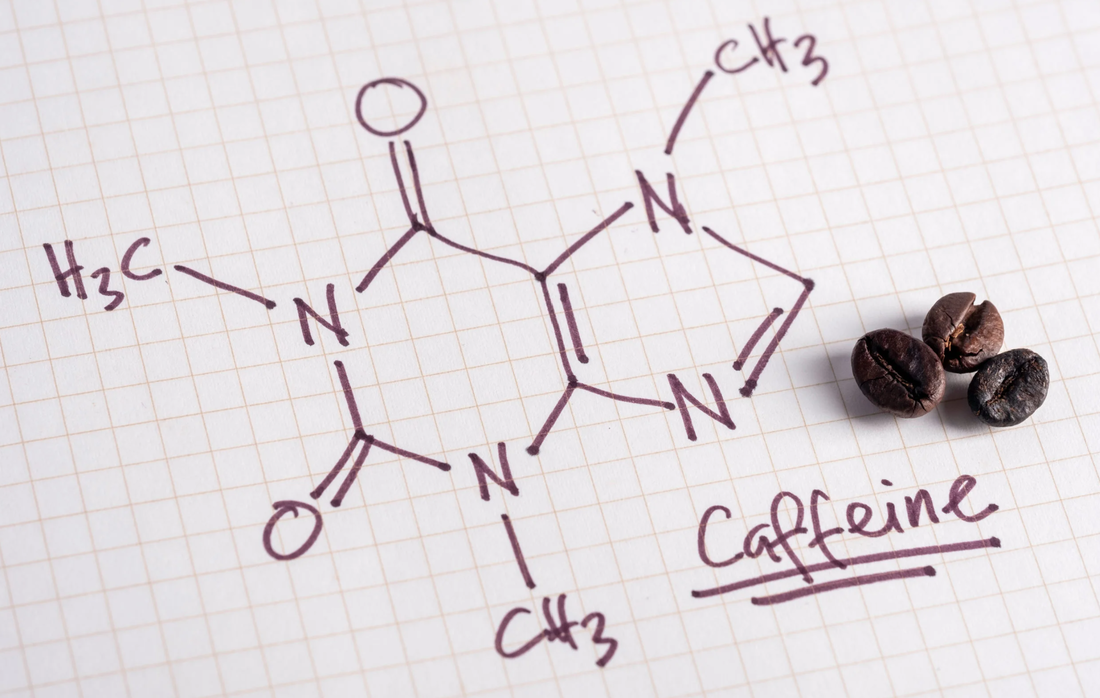


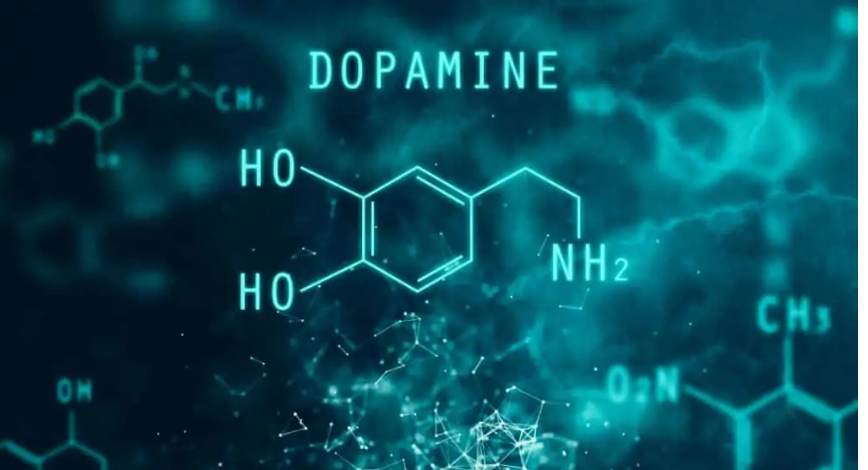
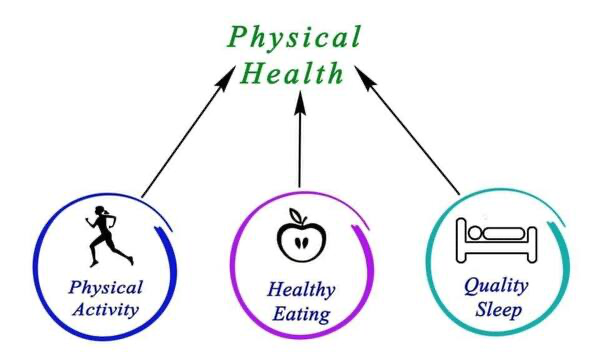



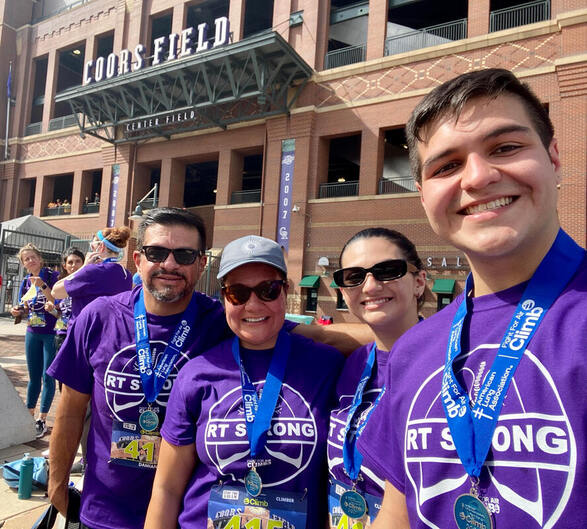
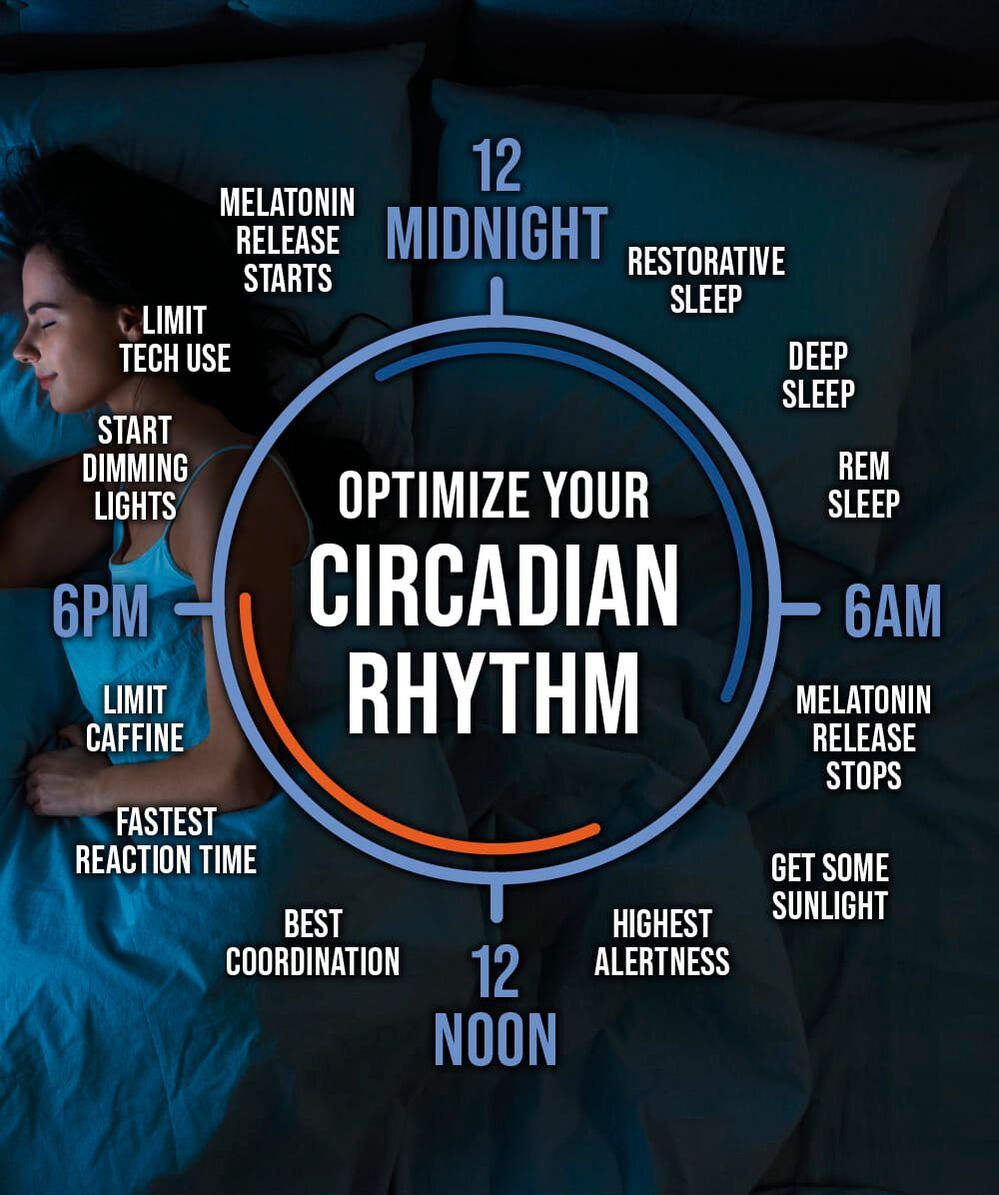



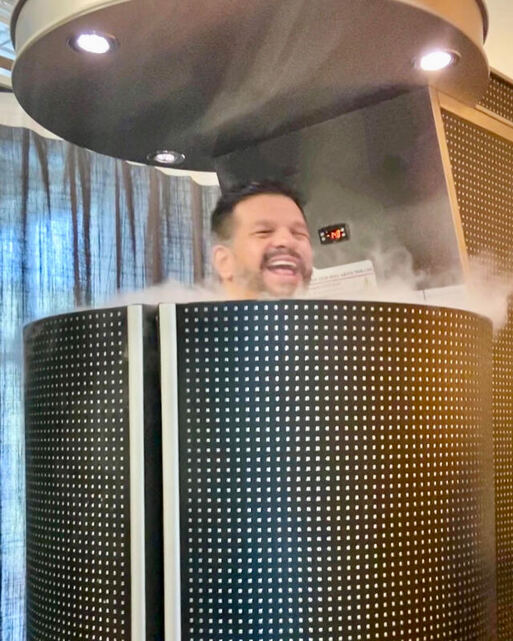
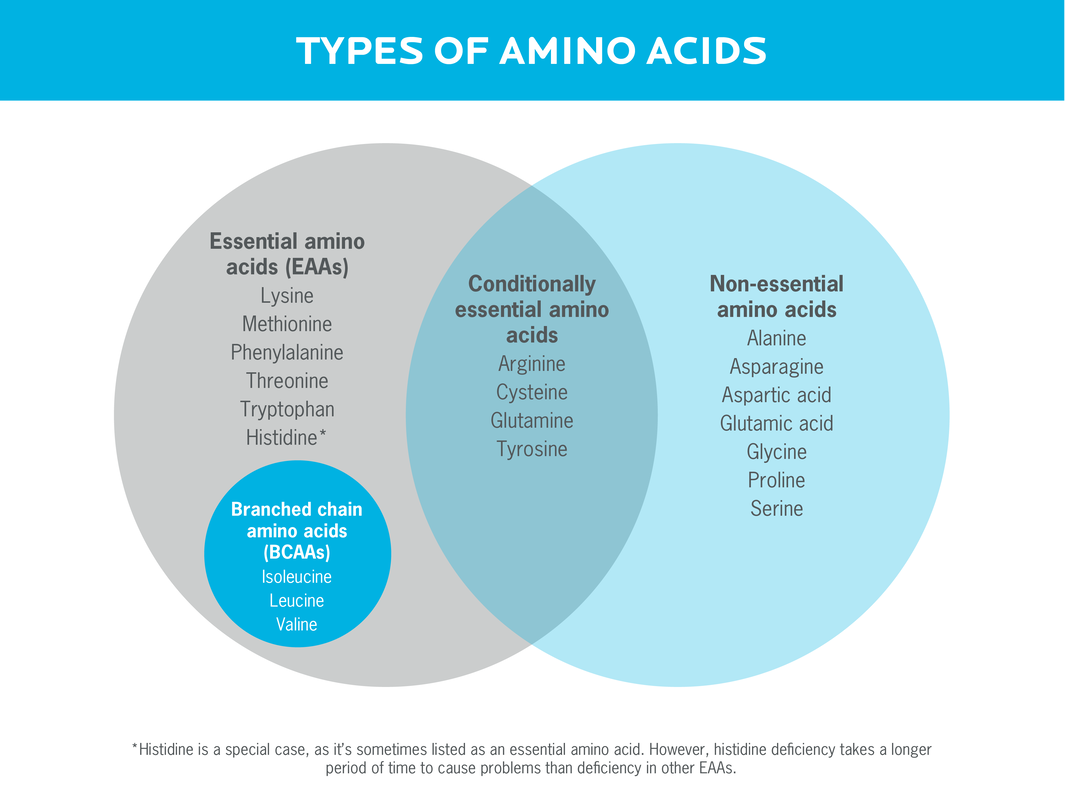
 RSS Feed
RSS Feed